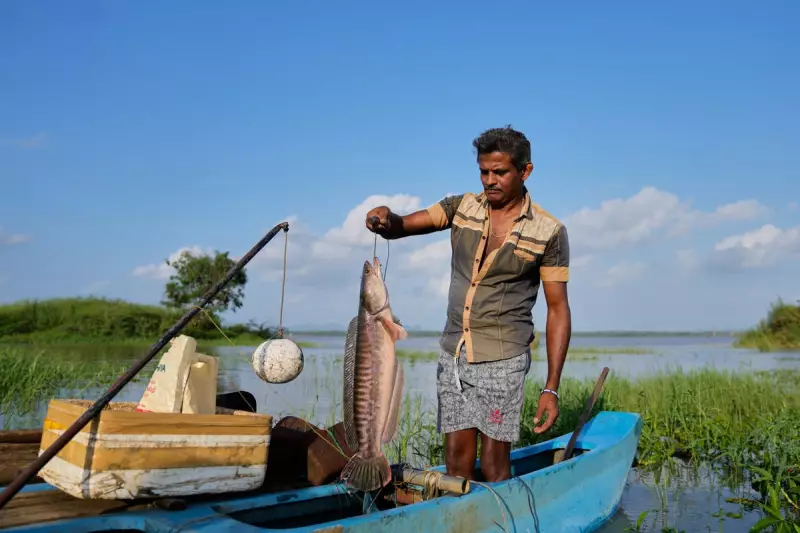
New Predator Threatens Traditional Livelihoods
A formidable new predator is wreaking havoc in the waters of northwestern Sri Lanka, presenting both a severe ecological challenge and an unexpected economic opportunity for local communities. The giant snakehead, an invasive fish species previously unknown to the region, has established a strong presence in the Deduru Oya reservoir, aggressively consuming traditional fish and shellfish that have sustained local fishermen for generations.
The Ecological Impact of an Unchecked Invader
Over the past two years, fishermen have witnessed a dramatic decline in their usual catches while observing the snakehead fish appear in astonishing numbers. According to officials, these fish – common in countries like Thailand and Indonesia – likely arrived in Sri Lanka as imported ornamental species. They believe irresponsible owners released the fish into the reservoir once they outgrew their domestic tanks.
Dr Kelum Wijenayake, an academic researching the species, confirms the snakehead has no natural predators within Sri Lanka's ecosystem. The Deduru Oya reservoir has provided perfect breeding conditions with ample food and absence of threats, allowing their population to flourish unchecked.
These resilient fish possess remarkable survival abilities, frequently surfacing to inhale atmospheric oxygen and surviving in minimal water. Their sharp teeth, strong jaws, and aggressive eating habits make them formidable predators capable of damaging local ecosystems that evolved over millennia.
Local Response: Turning Crisis into Opportunity
Fisherman Nishantha Sujeewa Kumara reported catching a specimen weighing an impressive 7 kilograms (15 pounds), while native species typically weigh less than a kilogram. Ranjith Kumara, secretary of the area's fishers association, explained that local fishermen initially hadn't encountered the species because snakeheads cannot be caught using traditional nets – they require angling techniques.
"We started fishing in this reservoir in 2016," Kumara noted. "Back then, we used to catch small prawns and other high-value varieties, but now they've become very rare."
Authorities attempted to control the snakehead population through an angler competition, though this approach proved unsuccessful. However, local fishermen are determined to transform this environmental threat into economic advantage.
Ranjith Kumara has proposed that authorities promote angler tourism as a consistent control method, potentially providing alternative economic avenues for villagers predominantly engaged in fishing and farming.
Meanwhile, fisherman Sujeewa Kariyawasam has developed a successful business producing salted dried fish using the invasive species. While fresh snakehead fish faces relatively low market demand, the dried version has become a popular delicacy.
"I am working to further develop this business," Kariyawasam stated. "As demand continues to grow, more snakeheads will be caught for production, which in turn will help control the spread of the snakehead population."
This innovative approach demonstrates how communities can adapt to environmental challenges, potentially creating sustainable solutions that address both ecological concerns and economic needs.





